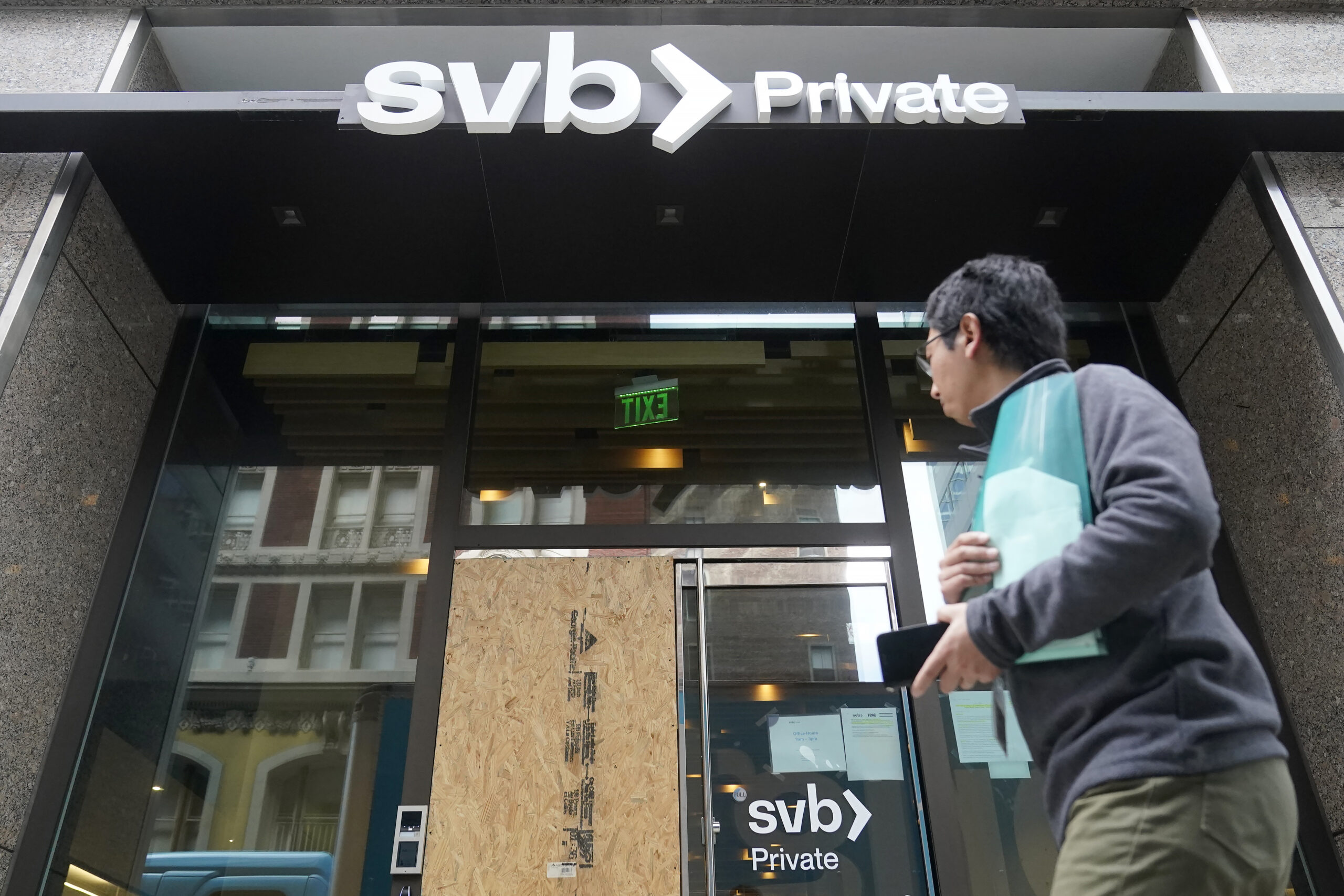Nearly 500 employees of Silicon Valley Bank (SVB) found an ominous email in their inboxes Wednesday morning paired with a meeting with human resources that officially notified them their employment with the bank would be terminated.
The workers will continue to be paid through June 9, although their computer access was cut off shortly after the call. Severance details, they were told, would be coming to their personal email addresses soon.
“Some people are very upset. Some people are angry. Some people are sad, and some are just numb,” said one director-level SVB employee who asked to be anonymous because of concerns about employment repercussions. “The reality of it is the leadership can now go back to Wall Street and say we bought this failed bank and now we’re doing something about it.”
In a message to staff Wednesday morning, First Citizens CEO Frank Holding wrote that “it is increasingly clear that we must make decisions to right-size our scope and scale to remain competitive.” Client-facing positions, as well as the organization’s support team in India, he wrote, would not be impacted.
Rumors had been spilling out over the past few weeks that the North Carolina-based bank, which purchased the assets of SVB after its dramatic collapse in March, had major layoffs in the works. Sources say that they believe additional layoffs may be forthcoming.
The departments hit particularly hard in the current round of layoffs included risk management and marketing, as well as back office functions like data engineering, IT and cybersecurity. SVB employees said that the majority of cuts were in middle and upper management, particularly positions at the director, senior director and managing director levels.
Former employees said they believe the layoffs were made in part to cut out redundancy in the organization and to pull back on SVB’s hiring spree during the pandemic.
During all-hands calls with employees, First Citizens repeatedly said it wanted to keep the “secret sauce” of SVB that made it a brand name in the tech sector. But multiple laid-off employees said they felt they were frozen out of decision-making and communications in the wake of the acquisition.
“Typically within SVB, we are a very close-knit community, and we get an almost overcommunication of things happening,” said one former senior risk-management employee. “But things went really silent.”
For example, the senior employee said they were locked out from viewing customer relationship software in the aftermath of the acquisition.
Employees describe a “war room” of sorts that featured top First Citizens leaders huddled with staff, including Phil Cox, SVB’s chief operating officer, who was one of the only C-suite executives to keep their position after the bank’s collapse.
They also described a culture clash over the past two months as First Citizens took over the assets of Silicon Valley Bank, which had been a primary financial engine for the West Coast-centered startup ecosystem for decades.
Employees cited swift changes to benefit programs, differences in lending strategy and portfolios and political differences between the progressive Bay Area workforce and First Citizens ownership.
In First Citizens’ earnings call earlier this month, bank executives said they expected to reduce costs through “consolidation of redundant or duplicate back office processes in systems as we do remain focused on supporting the existing frontline of business and their clients.”
In the earnings call, First Citizens executives also touched on the attrition that the company has seen from its ranks and said it expects to spend around $390 million on “personnel-related” expenses, including retention packages.
“As with any combination of discounts, some level of associate turnover in deposit and client churn is expected,” Holding said on the May earnings call.
First Citizens recently filed a federal lawsuit against HSBC and a number of former SVB employees claiming the group “engineered a scheme to plunder” top SVB talent and company secrets in a plan called “Project Colony.”
The roughly 40 employees who jumped ship for HSBC are part of a growing number of bankers who have left for rival firms—including JPMorgan Chase, Stifel and Moelis and Company—looking to build their own technology and startup-focused banking practices.
“It was pretty clear to me that [First Citizens Bank] is a very different culture,” said the former SVB director. “The SVB I used to work for, that SVB doesn’t really exist anymore. I was in a kind of place where I was thinking about moving on. So, for me, it’s a sign from the universe.”
